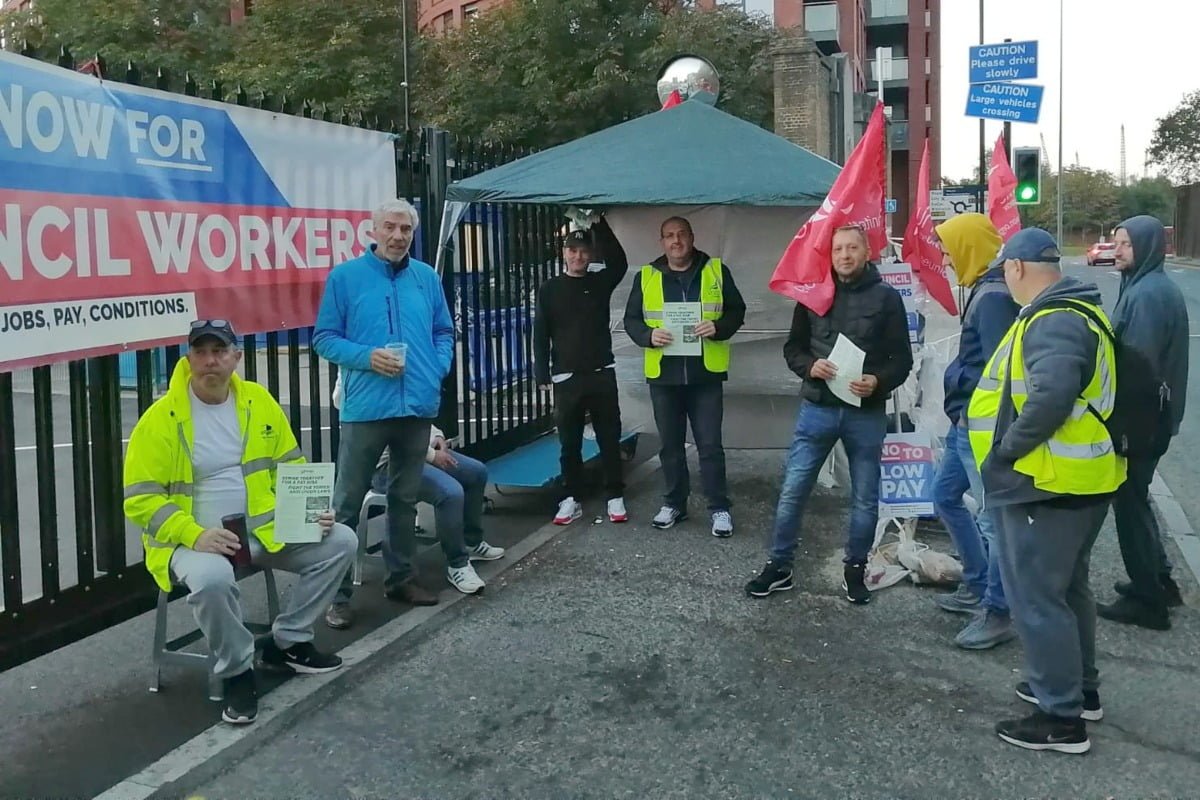On 26 September, an eight-day-long strike of around 200 refuse collectors and street cleaners in Tower Hamlets came to an end, with the workers voting to accept a union-recommended deal.
The strike was solid throughout. Local Unite rep Terry Page told us that over 99% of members had voted in favour of action. There were round the clock picket lines at the local vehicle depot. And when managers attempted to get a lorry out, they were stopped in their tracks.
The mood at the picket was lively and determined, with workers setting up a little cafe to serve drinks and food to the strikers.
The struggle was over pay. Nationally, the employers have offered local government workers a flat rate increase of £1,925. But this is below the rate of inflation, and would mean a pay cut.
Tower Hamlets council at first refused to even engage with the workers, with the excuse that this was a national dispute. They brought in a private company to deal with some rubbish collections and break the strike. This is shameful, given that Mayor Lutfur Rahman calls himself a socialist.
 It was the resilience and determination of the workers that brought council officials to the negotiating table.
It was the resilience and determination of the workers that brought council officials to the negotiating table.
The initial two-week strike notice was extended to four weeks. And as rubbish began to pile up across the borough, it was clear to all what an important role this group of workers play, and the power that they hold.
The final deal agreed includes a one-off payment of £750; an alignment of terms and conditions with the rest of the council workforce, which in most cases will include an additional four days annual leave; and bringing all 50 agency workers in-house, “on full council terms and conditions”.
It is open to question whether some aspects of the deal could have been improved. For instance, the one-off payment could have been boosted into an actual consolidated wage increase. There were also murmurs at the picket line about whether the agency workers will now lose some of their overtime payment.
In any case, the strike showed the potential strength that workers have, when they take united action. It also highlighted that sustained action is more effective than isolated one-or-two-day strikes. These are important lessons for workers in struggle everywhere.






